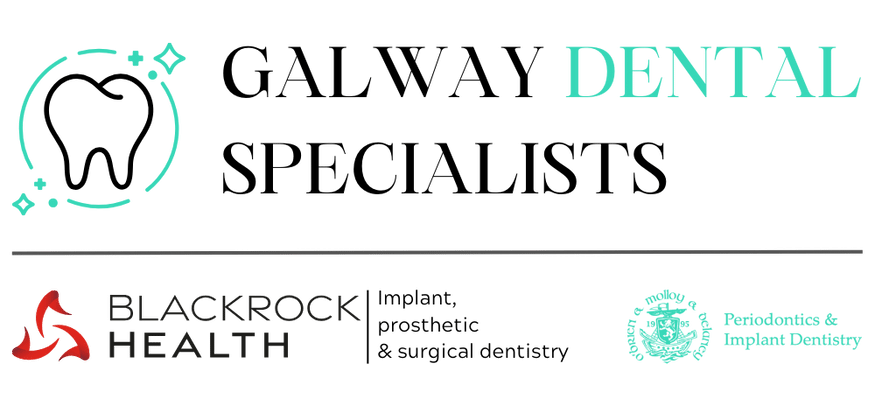A periodontist is a dentist who specializes in the prevention, diagnosis, and treatment of periodontal disease, and in the placement and maintenance of dental implants. Periodontists receive extensive training in these areas. They are familiar with the latest techniques for diagnosing and treating periodontal disease, and are also trained in performing cosmetic periodontal procedures and implant surgeries
What is a periodontist
Periodontists will often treat more problematic periodontal cases, such as those patients with more severe form of gum disease or those with a complex medical history. Periodontists offer a wide range of treatments, such as scaling and root planning, periodontal surgery, gum grafting, and crown lengthening procedures. In addition, periodontists are specially trained in the placement, maintenance, and repair of dental implants and associated procedures such as bone grafts.
Basic periodontal therapy
With appropriate treatment, it is usually possible to completely halt the progress of periodontitis. The key to success is to eliminate the bacterial plaque which is triggering the disease process and to establish excellent oral hygiene practices.
- Oral hygiene instruction and advice – The aim of the oral hygiene phase of treatment is to reduce the number of bacteria in the mouth and therefore reduce the level of inflammation. You will be given individual advice on how to use the various cleaning aids most effectively. This will include brushing technique and the use of inter-dental cleaning aids.
- Root Debridement – All hard and soft deposits will be removed from the teeth and roots. This phase is always carried out using local anaesthetic. Generally this process is painless in the gums afterwards. However, the teeth generally become more sensitive afterwards for a period
- Antibiotic therapy – In some cases, antibiotics are prescribed to deal with active or persistent gum infections, which have not responded to oral hygiene measures.
- Reassessment – After about 3 months, your periodontist will make a full assessment of your gums to check the progress of your treatment. This will involve measuring the pocket depths around your teeth again, to compare them to you initial presentation. This will gauge how well the treatment has worked and how much of an improvement there has been.. If periodontal pockets are still present, further treatment options may be suggested, including surgical corrective therapy.
- Aftercare – The ongoing aftercare is crucial to the long-term success of periodontal treatment. It depends both on your own efforts with oral hygiene and those of the practice team who provide your regular care and ongoing assessment. After the first phase of treatment has been completed, your periodontist will need to review the condition of your gums at regular intervals to check that the inflammation has been halted. The frequency of your follow-up appointments will depend on the severity of disease and your individual risk of disease progression. Usually, follow-up visits are scheduled for every three to six months.
Advanced periodontal therapy
Corrective (surgical) treatment – Sometimes, a surgical procedure is carried out to gain access under the gum within periodontal pockets. This allows access to the deepest aspects on the root surfaces and at the furcations (where the roots diverge). These areas are inaccessible to brushes and floss and inflammation will persist in these sites as long as bacteria are allowed to colonize them.
Under local anaesthesia, the gum is lifted away, and the root surfaces are cleaned under direct vision to ensure that all bacteria are removed. At the end of the procedure, the gums are sutured back into place around the teeth.
Risk assessment
There are a number of factors that increase your chance of developing periodontitis and make it more likely to progress. Well-known risk factors include Smoking, certain systemic diseases such as diabetes and general lifestyle factors such as stress
Other important factors affecting the health of your gums include:
- Smoking/ Tobacco Usage
- Diabetes
- Stress
- Clenching and Grinding Teeth
- Medication
- Poor Nutrition
Those Most At Risk
Smoking and periodontitis
- Smokers are significantly more likely to develop periodontitis than non-smokers. Periodontal treatments (such as gum/ bone grafts and implants) are less successful in smokers than non-smokers due to poorer healing. Periodontitis progresses much faster, with more rapid tooth loss, in smokers. Generally the majority of cases that fail to respond to periodontal therapy are associated with people who smoke.
Diabetes and Periodontitis
- Diabetes is an increasingly common disease in Western countries. It involves a failure to regulate glucose or sugar levels in the blood due to an inability to process insulin. People with diabetes can often have a higher risk of developing gum disease. This particularly applies to people with uncontrolled or poorly controlled diabetes. Full periodontal therapy will be needed, and you will need excellent hygiene with regular follow on care to maintain periodontal health. Although diabetics have worse periodontal health, there are studies that show improved diabetes control in those who have had successful periodontal therapy. Your periodontist will guide you through the necessary treatment and process.
Pregnancy and Periodontitis
- Your gum health can also be affected during pregnancy. This is often most pronounced between the 2nd and 8th-month mark. Hormone levels can cause gingival inflammation and worsen pre-existing periodontal disease. Also, sometimes large lumps can appear on the gums in response to a build-up of plaque locally. Periodontal health should form a part of your prenatal care. It has been shown repeatedly that periodontal infections or disease can place a baby’s health at risk and increase the risks of lower preterm birth weight. The best way to ensure optimum periodontal health during pregnancy is to see a periodontist.
Gum grafting
The gums may recede at teeth over the years. This is usually caused by excessive or aggressive brushing, but certain people are more predisposed to recession due to having ‘’thin’’ gums or a thin bio-type. This recession leads to the gum receding and exposing the root of the tooth. If this subsequent recession is causing an aesthetic issue or the tooth recession is causing sensitivity then a gum graft can be performed to cover the recession.
This is achieved when a small piece of tissue is harvested from the roof of the mouth and placed in the area of the recession. This graft then beds in and forms new gum to thicken the gum in the area and cover the recession. In some situations, a graft may be used that comes from a human tissue bank or from animal origin. Gums grafts are highly predictable and give good long term results
Crown lengthening
Crown lengthening surgery is needed when your tooth or teeth need a restoration such as a crown. In some scenarios, the healthy margin of the tooth may be located deep below the gum. In order the access the clean margin, a small amount of gum and bone is removed. This allows your dentist to access the healthy tooth structure that was previously covered to facilitate a proper fit for the new crown.


Crown lengthening may also be indicated when patients show too much gums when they smile – a so-called ‘’gummy’’ smile. In the scenario the excess gum is removed to reveal more of the tooth underneath to give a better aesthetic look.
This procedure is carried out under local anaesthetic and usually there will be a couple of sutures in place afterwards.
Bone grafting
Sometimes, it is possible to treat bone loss due to periodontal disease by doing a regenerative bone graft procedure. This is done surgically by lifting back to gums to gain access to the defect around the affected tooth. A special graft material is the placed or grafted into the bony defect to replace or grow new bone. This new bone growth greatly improves the condition and prognosis for a tooth previously affected by periodontal disease
Oral surgery and wisdom teeth
Our specialist dentists are highly trained in all aspects of surgical dentistry. This includes the surgical removal of wisdom teeth. Impacted or retained wisdom teeth can often cause pain or infection and need to be removed.
This procedure can be done under local anesthetic and if necessary sedation or general anesthetic in the Galway Clinic. Wisdom teeth removal is often covered under medical insurance. All aspects of the surgery and costs will be discussed with you by our surgeons at the consultation appointment.





